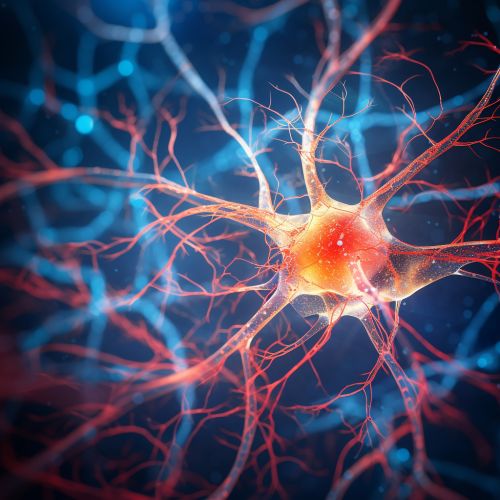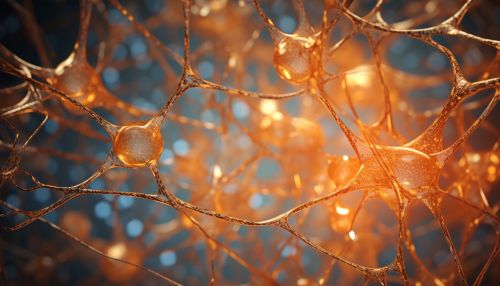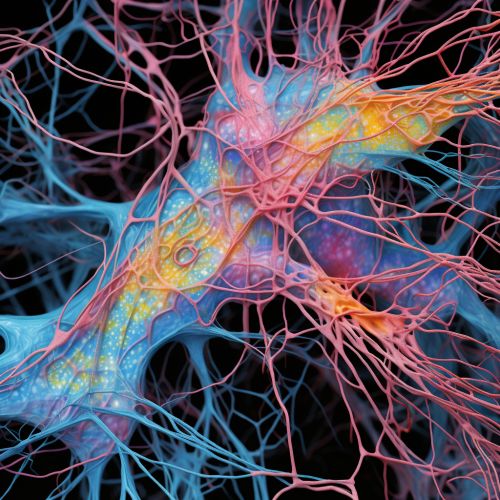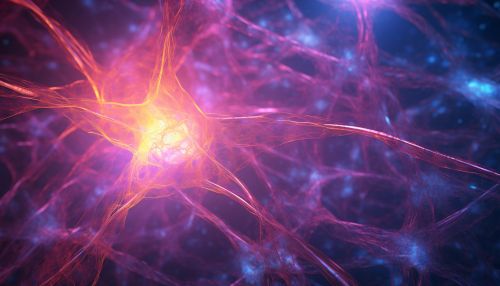Neuropathy
Overview
Neuropathy, also known as peripheral neuropathy, is a condition that results from damage to the peripheral nerves, the nerves that transmit signals between the central nervous system (the brain and spinal cord) and the rest of the body. This condition can cause a variety of symptoms, including pain, numbness, and weakness, typically in the hands and feet. Neuropathy can be caused by a number of factors, including certain diseases and infections, exposure to toxins, and genetic disorders. Treatment for neuropathy typically involves managing the underlying cause and alleviating symptoms.


Causes and Risk Factors
Neuropathy can be caused by a variety of factors. Some of the most common causes include:
- Diabetes mellitus, particularly in individuals who have had the disease for a long period of time or who have difficulty controlling their blood sugar levels.
- Certain infections, such as Lyme disease, HIV/AIDS, and hepatitis C, which can directly damage nerves or trigger immune responses that cause nerve damage.
- Genetic disorders, such as Charcot-Marie-Tooth disease, that affect the nerves.
- Exposure to toxins, including heavy metals and certain medications, such as chemotherapy drugs.


Risk factors for developing neuropathy include:
- Having a family history of neuropathy or other neurological disorders.
- Being over the age of 40, as the risk of developing neuropathy increases with age.
- Having certain medical conditions, such as kidney disease, liver disease, or autoimmune diseases.
- Lifestyle factors, such as excessive alcohol consumption or vitamin deficiencies, particularly vitamin B12 and folate.
Symptoms
The symptoms of neuropathy can vary widely depending on the type of nerves affected. There are three types of peripheral nerves: sensory nerves, which transmit sensations such as heat, pain, and touch; motor nerves, which control muscle movement; and autonomic nerves, which control functions such as blood pressure, heart rate, digestion, and bladder function.


Symptoms of sensory neuropathy can include:
- Numbness or reduced sensation in the affected areas.
- Tingling or prickling sensations.
- Increased sensitivity to touch or temperature.
- Pain, which can be severe and may be described as burning, stabbing, or shooting.
- Difficulty coordinating movement, particularly in the hands.
Symptoms of motor neuropathy can include:
- Muscle weakness or paralysis.
- Muscle cramping or twitching.
- Difficulty with fine motor tasks, such as buttoning a shirt or writing.
- Changes in muscle tone, such as muscle atrophy or hypertrophy.
Symptoms of autonomic neuropathy can include:
- Changes in heart rate or blood pressure, such as orthostatic hypotension (a drop in blood pressure upon standing).
- Difficulty with digestion, such as constipation, diarrhea, or nausea.
- Changes in bladder function, such as incontinence or urinary retention.
- Sexual dysfunction, such as erectile dysfunction in men or vaginal dryness in women.
Diagnosis
Diagnosing neuropathy typically involves a thorough medical history and physical examination, as well as a variety of tests to determine the type and extent of nerve damage. These tests may include:
- Nerve conduction studies, which measure how quickly electrical signals move through your nerves.
- Electromyography (EMG), which measures the electrical activity in your muscles.
- Quantitative sensory testing, which measures your ability to feel vibration, temperature, and pressure.
- Autonomic testing, which measures how your body responds to changes in position, temperature, and other stimuli.


In some cases, a nerve biopsy may be performed to examine a small sample of nerve tissue under a microscope. This can help to identify any abnormalities in the nerve fibers, such as inflammation or structural changes.
Treatment
Treatment for neuropathy typically involves managing the underlying cause, if known, and alleviating symptoms. This may include:
- Medications to control pain, such as nonsteroidal anti-inflammatory drugs (NSAIDs), opioids, or certain types of antidepressants or anticonvulsants.
- Physical therapy to improve strength and mobility.
- Occupational therapy to help with fine motor tasks and activities of daily living.
- Lifestyle modifications, such as maintaining a healthy weight, exercising regularly, and avoiding alcohol and tobacco.
- In severe cases, surgical procedures may be performed to relieve pressure on affected nerves.


Prognosis
The prognosis for individuals with neuropathy can vary widely depending on the underlying cause, the type and extent of nerve damage, and the individual's overall health. In some cases, neuropathy may be progressive and lead to permanent nerve damage. However, with appropriate treatment and management, many individuals with neuropathy are able to lead active and fulfilling lives.
